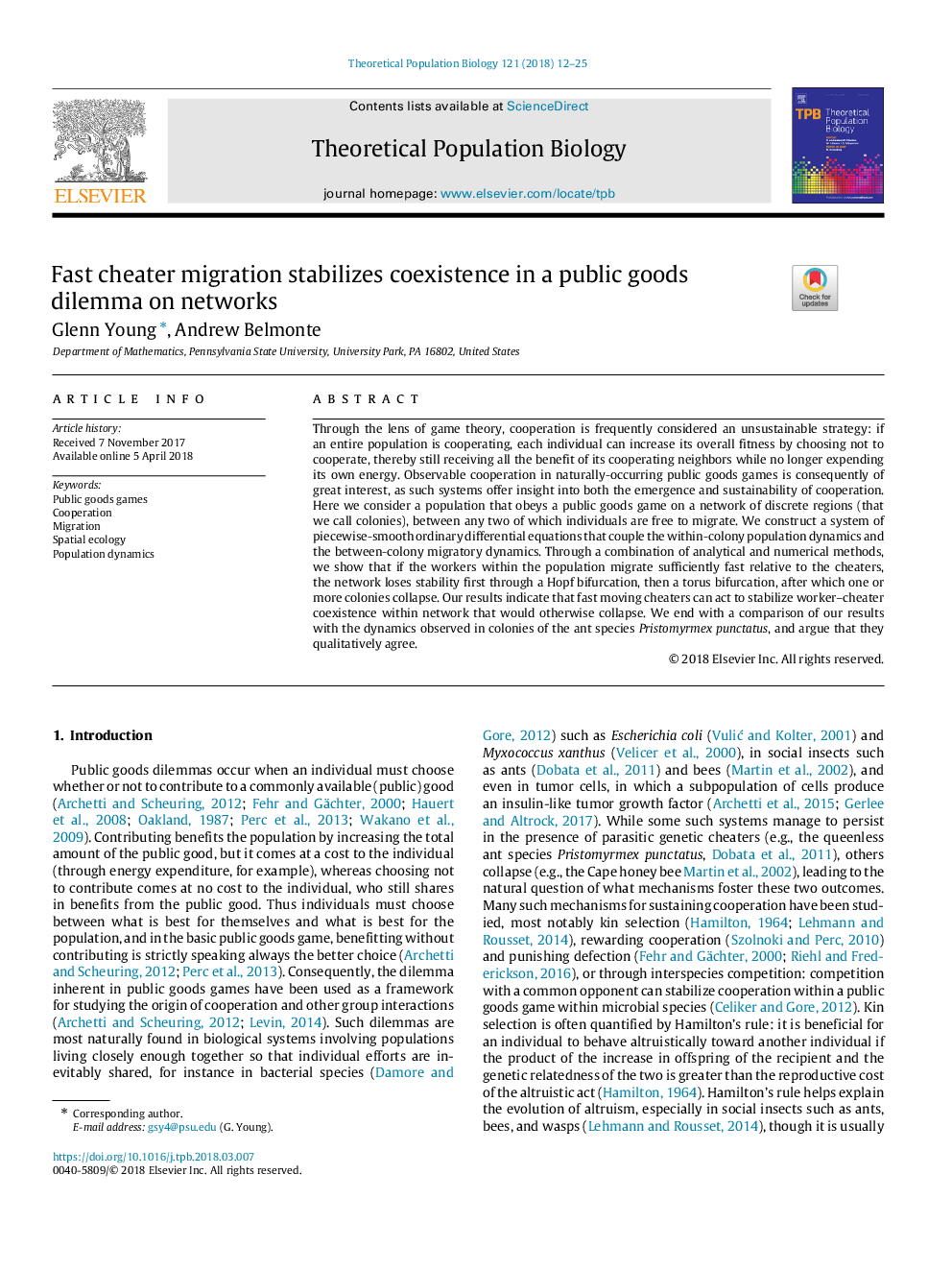| Article ID | Journal | Published Year | Pages | File Type |
|---|---|---|---|---|
| 8877449 | Theoretical Population Biology | 2018 | 14 Pages |
Abstract
Through the lens of game theory, cooperation is frequently considered an unsustainable strategy: if an entire population is cooperating, each individual can increase its overall fitness by choosing not to cooperate, thereby still receiving all the benefit of its cooperating neighbors while no longer expending its own energy. Observable cooperation in naturally-occurring public goods games is consequently of great interest, as such systems offer insight into both the emergence and sustainability of cooperation. Here we consider a population that obeys a public goods game on a network of discrete regions (that we call colonies), between any two of which individuals are free to migrate. We construct a system of piecewise-smooth ordinary differential equations that couple the within-colony population dynamics and the between-colony migratory dynamics. Through a combination of analytical and numerical methods, we show that if the workers within the population migrate sufficiently fast relative to the cheaters, the network loses stability first through a Hopf bifurcation, then a torus bifurcation, after which one or more colonies collapse. Our results indicate that fast moving cheaters can act to stabilize worker-cheatercoexistence within network that would otherwise collapse. We end with a comparison of our results with the dynamics observed in colonies of the ant species Pristomyrmex punctatus, and argue that they qualitatively agree.
Related Topics
Life Sciences
Agricultural and Biological Sciences
Agricultural and Biological Sciences (General)
Authors
Glenn Young, Andrew Belmonte,
